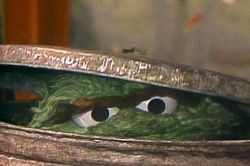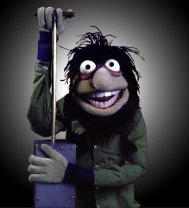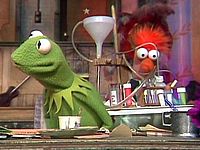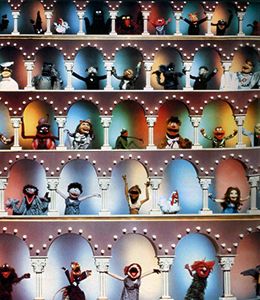HOW TO WRITE A BOOK 2: ELECTRIC BOOKALOO
About a month ago, I wrote a blog entry called How to Write a Book. I wrote it on a hot July day in England, a deadline barreling down on me. I had been sitting at the same table, staring at my computer for what felt like nine years. So I decided to write exactly what was going through my mind at that moment.
I was considerably heartened to find that many other writers felt the same way that I did.
Now that I find myself in almost the exact same place, only a little bit worse, I think it’s time to bring you another installment of How to Write a Book. This time, let’s talk about some writing realities and fictions.
THE WRITER: BASIC HABITS AND APPEARANCE
Movies and TV love to portray writers a few different ways. Sometimes they are extremely glamorous, cocktail-swilling people. Sometimes they are hopeless romantics in tweed.
Let’s take a common fictional portrayal of The Writer. He’s at his desk, wearing a suit, typing with one hand, picking up the phone with another. He’s fielding invitations to caviar tastings, literary white-water rafting trips, free hot air balloon rides, and cocktail parties on private jets owned by celebrities.
“What do you want?” you imagine he yells into his phone. “I’m mere sentences away from completing a major work of literature. Yes, yes. I’ll come to the opening of your champagne factory. Now get out of here!”

In the usual public image, The Writer is a calm, smooth operator
It doesn’t work that way. The problem is, writing is not a fancy, interactive activity. There is no inherent glamour in sitting in front of a computer for two months straight. If The Writer came out of his house dressed in his usual working manner, you would probably drop change into his coffee cup.
A really dressed-up writer is maybe wearing extremely fancy sweatpants. He may not have put on shoes in a week. There may be a sweater involved, but that sweater probably lives on the back of his chair. Don’t ask about the shower, or when he changed out of the pajamas. These things are not important.

When working, The Writer really looks something like this
THE PROCESS AND THE TOOLS
The painful truth is that writing involves writing. And by writing, I mean sitting down and putting words into meaningful strands. This has always been one of the serious flaws of the job that no one has worked out yet, though many have tried.
Writing is often a wonderful thing. The Writer usually starts out with lots of ideas. Sections of the story will appear in his mind, almost whole. Unfortunately, The Writer can’t just write the bits of his story that come easily. He has to write the entire story, even the parts where he simply has no idea what it supposed to happen. Even when left alone at night with soothing music playing, the story will not write itself. Then the participants will start acting up. Normally well-behaved characters will start speaking out of turn, or wander into scenes where they don’t belong.
Plus, books are not just written once. They are written three, five, ten, forty times. And some drafts will just not be that good. Writers never set out to write bad drafts—it’s almost a draft’s job to fail. The Writer will turn in some drafts and feel like he will never be able to look into his Editor’s eye again. The Writer spends an inordinate amount of time doing things wrong, before he can do them right. It’s like riding the failurecoaster to success.

Some drafts will fail to impress
THE OTHER WRITER
To add to The Writer’s anguish, there is always someone out there who appears to be doing what The Writer is doing—and several times more. If the Writer writes one page, the Other Writer writes ten of breathtaking beauty and meaning. If The Writer finishes a chapter, the Other Writer finishes a book. When The Writer finishes a book, the Other Writer has written a trilogy and released three CDs of original music to go with it.
The Other Writer does this while maintaining a grueling schedule of partying, ribbon-cuttings at gala openings of supermarkets, firefighting, directing television shows, and professional ice skating.
What’s even worse is that The Writer LIKES the Other Writer’s work. The Writer knows better than to compare himself with the Other Writer. Writing is not a competition. But it’s useless. The Writer cannot help but watch the Other Writer’s every move.

The Other Writer does it all with style
CABIN FEVER
So, The Writer doubles his efforts. He locks himself inside and gets down to it.
This is usually the time The Writer notices the quiet, and it will dawn on him that he has not been out of his apartment in two days. The thundering silence will begin to eat at The Writer’s psyche. He can’t sit still.
It’s so . . . quiet.
So very quiet.
“I need to research,” The Writer says to himself. “I need to look some things up for my book! That will be productive.”
(The illusion here, of course, is that the WWW is an actual world, and a legitimate substitute for going outside and seeing other people.)
The Writer starts Googling his subject. Then he sees something in that link, which he clicks. And then there’s a news story about that link, so he reads that. Then he Googles himself, Googles people that may have at some point mentioned him, Googles books he means to read. He Googles the Other Writer. He Googles the things that appear at the top of his Google pages, until he has fallen into such a swirling haze of Googlegoo that he long forgets what he first set out to do. He stumbles around his apartment for a while trying to get his bearings.

The Writer after a week at the desk
TEAM WRITER
Meanwhile, even though the book is nowhere near done, it has taken on a life of its own. It takes a lot of people to get a book out into the world. They plot silently, somewhere just outside of The Writer’s field of vision. Somewhere . . . out there.
There’s the Editor who reads all of The Writer’s bad drafts. There’s the designer who is making the cover that The Writer will either love or hate. There’s a copyeditor and proofreader who already have the as-yet-incomplete book on their schedules. There’s the production manager, who is scheduling the time when this as-yet-incomplete book will go off to the printer. There’s a sales and marketing team figuring out how many copies of the as-yet-incomplete book will be needed, and where they might go, and what publicity will be needed. There’s a publicity team making plans for coverage of something they haven’t even seen yet.
Sometimes these people make The Writer nervous. He cannot see the Team, but he knows there are there, somewhere, and they want his book.

There is always someone working behind The Writer.
THE CRITIC
So, let’s say The Writer finishes his book. Well done, Writer!
But, here’s the thing . . .
No matter who you are and what you write, there is always going to be at least one person who has to tell you that they hate it. And not a little bit, either. A lot. It may be an actual critic. It may be someone online. It may be someone in a writing group. But someone is going to hate it.
The Critic usually just likes the sound of himself talking. He needs to be heard trashing The Writer. Bad reviews are easy and fun to write. Jokes will be cracked at The Writer’s expense. Even worse, sometimes the Critic will say something that The Writer knows is absolutely true.
And many times, the worst Critic is The Writer himself. Often, The Writer cannot read his own work once its out. Why? Because there is something wrong with it, and that is all The Wrtiter is able to see. That glitch on page 41? That haunts The Writer’s dreams at night. Chapter twelve? Oh, let’s not even talk about chapter twelve, not unless you want to see a grown man cry.

CRITIC 1: “You know who this book would be good for?”
CRITIC 2: “Who?”
CRITIC 1: “Someone who’s run out of firewood!”
CRITICS: HA HA HA HA HA HA
THE READERS
Far outnumbering The Critics are The Readers. Out of the sheer kindness of their hearts, out of some magical ability . . . they take what The Writer has written and they make it their own. They don’t set out looking for things to hate (usually); they sit down willing to be transported to the place The Writer has created.
The Writer can barely believe that such wonderful beings exist.
 The Readers are there to make it all happen.
The Readers are there to make it all happen.
I was considerably heartened to find that many other writers felt the same way that I did.
Now that I find myself in almost the exact same place, only a little bit worse, I think it’s time to bring you another installment of How to Write a Book. This time, let’s talk about some writing realities and fictions.
THE WRITER: BASIC HABITS AND APPEARANCE
Movies and TV love to portray writers a few different ways. Sometimes they are extremely glamorous, cocktail-swilling people. Sometimes they are hopeless romantics in tweed.
Let’s take a common fictional portrayal of The Writer. He’s at his desk, wearing a suit, typing with one hand, picking up the phone with another. He’s fielding invitations to caviar tastings, literary white-water rafting trips, free hot air balloon rides, and cocktail parties on private jets owned by celebrities.
“What do you want?” you imagine he yells into his phone. “I’m mere sentences away from completing a major work of literature. Yes, yes. I’ll come to the opening of your champagne factory. Now get out of here!”

In the usual public image, The Writer is a calm, smooth operator
It doesn’t work that way. The problem is, writing is not a fancy, interactive activity. There is no inherent glamour in sitting in front of a computer for two months straight. If The Writer came out of his house dressed in his usual working manner, you would probably drop change into his coffee cup.
A really dressed-up writer is maybe wearing extremely fancy sweatpants. He may not have put on shoes in a week. There may be a sweater involved, but that sweater probably lives on the back of his chair. Don’t ask about the shower, or when he changed out of the pajamas. These things are not important.

When working, The Writer really looks something like this
THE PROCESS AND THE TOOLS
The painful truth is that writing involves writing. And by writing, I mean sitting down and putting words into meaningful strands. This has always been one of the serious flaws of the job that no one has worked out yet, though many have tried.
Writing is often a wonderful thing. The Writer usually starts out with lots of ideas. Sections of the story will appear in his mind, almost whole. Unfortunately, The Writer can’t just write the bits of his story that come easily. He has to write the entire story, even the parts where he simply has no idea what it supposed to happen. Even when left alone at night with soothing music playing, the story will not write itself. Then the participants will start acting up. Normally well-behaved characters will start speaking out of turn, or wander into scenes where they don’t belong.
Plus, books are not just written once. They are written three, five, ten, forty times. And some drafts will just not be that good. Writers never set out to write bad drafts—it’s almost a draft’s job to fail. The Writer will turn in some drafts and feel like he will never be able to look into his Editor’s eye again. The Writer spends an inordinate amount of time doing things wrong, before he can do them right. It’s like riding the failurecoaster to success.

Some drafts will fail to impress
THE OTHER WRITER
To add to The Writer’s anguish, there is always someone out there who appears to be doing what The Writer is doing—and several times more. If the Writer writes one page, the Other Writer writes ten of breathtaking beauty and meaning. If The Writer finishes a chapter, the Other Writer finishes a book. When The Writer finishes a book, the Other Writer has written a trilogy and released three CDs of original music to go with it.
The Other Writer does this while maintaining a grueling schedule of partying, ribbon-cuttings at gala openings of supermarkets, firefighting, directing television shows, and professional ice skating.
What’s even worse is that The Writer LIKES the Other Writer’s work. The Writer knows better than to compare himself with the Other Writer. Writing is not a competition. But it’s useless. The Writer cannot help but watch the Other Writer’s every move.

The Other Writer does it all with style
CABIN FEVER
So, The Writer doubles his efforts. He locks himself inside and gets down to it.
This is usually the time The Writer notices the quiet, and it will dawn on him that he has not been out of his apartment in two days. The thundering silence will begin to eat at The Writer’s psyche. He can’t sit still.
It’s so . . . quiet.
So very quiet.
“I need to research,” The Writer says to himself. “I need to look some things up for my book! That will be productive.”
(The illusion here, of course, is that the WWW is an actual world, and a legitimate substitute for going outside and seeing other people.)
The Writer starts Googling his subject. Then he sees something in that link, which he clicks. And then there’s a news story about that link, so he reads that. Then he Googles himself, Googles people that may have at some point mentioned him, Googles books he means to read. He Googles the Other Writer. He Googles the things that appear at the top of his Google pages, until he has fallen into such a swirling haze of Googlegoo that he long forgets what he first set out to do. He stumbles around his apartment for a while trying to get his bearings.

The Writer after a week at the desk
TEAM WRITER
Meanwhile, even though the book is nowhere near done, it has taken on a life of its own. It takes a lot of people to get a book out into the world. They plot silently, somewhere just outside of The Writer’s field of vision. Somewhere . . . out there.
There’s the Editor who reads all of The Writer’s bad drafts. There’s the designer who is making the cover that The Writer will either love or hate. There’s a copyeditor and proofreader who already have the as-yet-incomplete book on their schedules. There’s the production manager, who is scheduling the time when this as-yet-incomplete book will go off to the printer. There’s a sales and marketing team figuring out how many copies of the as-yet-incomplete book will be needed, and where they might go, and what publicity will be needed. There’s a publicity team making plans for coverage of something they haven’t even seen yet.
Sometimes these people make The Writer nervous. He cannot see the Team, but he knows there are there, somewhere, and they want his book.

There is always someone working behind The Writer.
THE CRITIC
So, let’s say The Writer finishes his book. Well done, Writer!
But, here’s the thing . . .
No matter who you are and what you write, there is always going to be at least one person who has to tell you that they hate it. And not a little bit, either. A lot. It may be an actual critic. It may be someone online. It may be someone in a writing group. But someone is going to hate it.
The Critic usually just likes the sound of himself talking. He needs to be heard trashing The Writer. Bad reviews are easy and fun to write. Jokes will be cracked at The Writer’s expense. Even worse, sometimes the Critic will say something that The Writer knows is absolutely true.
And many times, the worst Critic is The Writer himself. Often, The Writer cannot read his own work once its out. Why? Because there is something wrong with it, and that is all The Wrtiter is able to see. That glitch on page 41? That haunts The Writer’s dreams at night. Chapter twelve? Oh, let’s not even talk about chapter twelve, not unless you want to see a grown man cry.

CRITIC 1: “You know who this book would be good for?”
CRITIC 2: “Who?”
CRITIC 1: “Someone who’s run out of firewood!”
CRITICS: HA HA HA HA HA HA
THE READERS
Far outnumbering The Critics are The Readers. Out of the sheer kindness of their hearts, out of some magical ability . . . they take what The Writer has written and they make it their own. They don’t set out looking for things to hate (usually); they sit down willing to be transported to the place The Writer has created.
The Writer can barely believe that such wonderful beings exist.
 The Readers are there to make it all happen.
The Readers are there to make it all happen.


























2 Comments:
Reading is extremely cool and I really liked being transported into Ginny's travels.
I smiled. I smiled a lot. :)
"Normally well-behaved characters will start speaking out of turn, or wander into scenes where they don’t belong."
That is where I have been for about three weeks. It's driving me NUTS.
Post a Comment
Subscribe to Post Comments [Atom]
<< Home